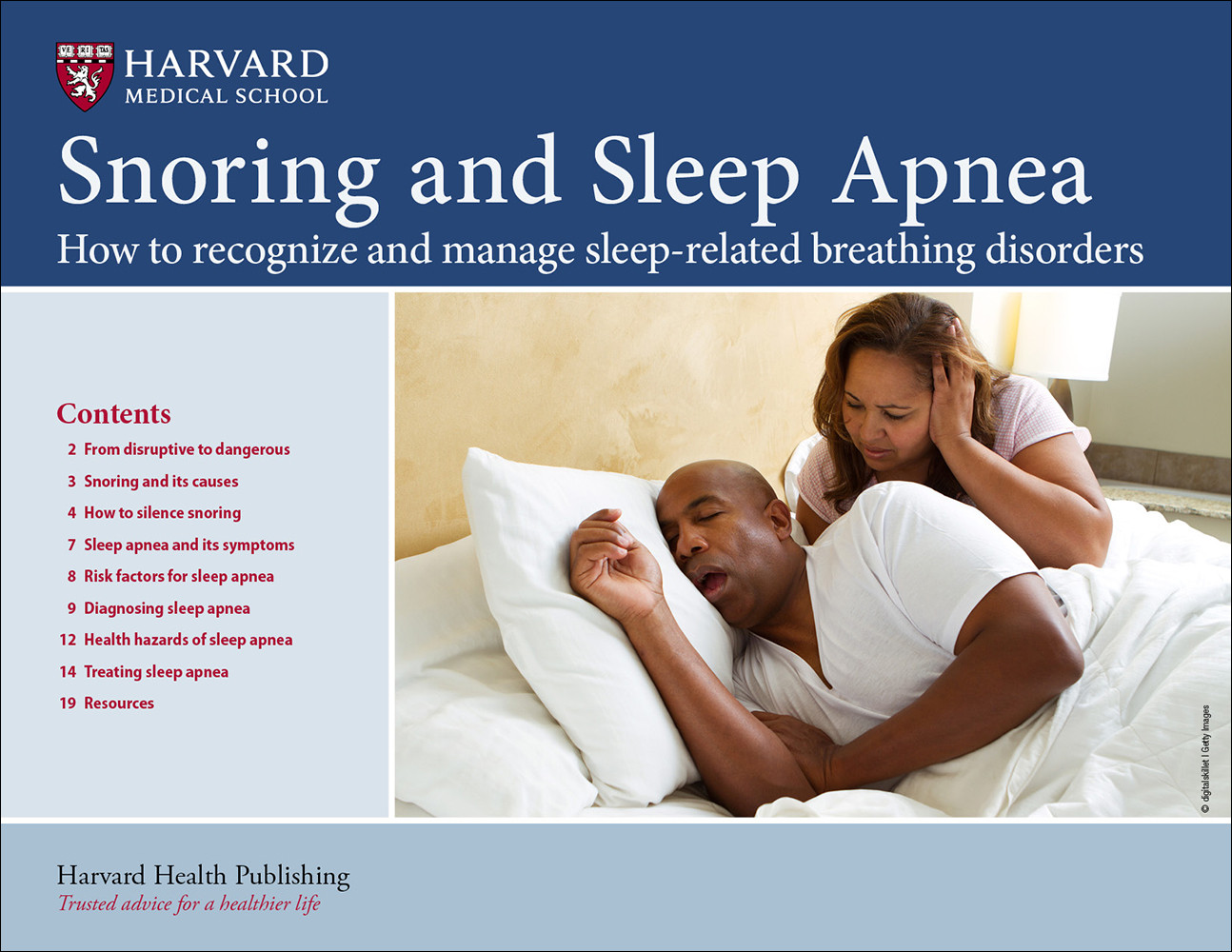Snoring and Sleep Apnea

Harvard Doctors Reveal: Snoring and Sleep Apnea Solutions that Work
If you snore, it may be more than a run-of-the-mill annoyance.
Your snoring could be a sign of sleep apnea. And not knowing you have sleep apnea puts you at risk for a variety of apnea-related health hazards including clogged arteries, stroke, and diabetes.
The good news is there are plenty of ways to successfully treat sleep apnea, enjoy better sleep, and live a long, healthy life.
Is your snoring really sleep apnea? Find out now…
One of the telltale signs of sleep apnea is something your partner may notice — loud snoring punctuated by brief pauses in your breathing, followed by gasping or choking noises. These noises can happen hundreds of times every night.
But if your partner is a heavy sleeper or if you sleep alone, you may miss this telltale sign. Luckily, there are also 8 other symptoms of sleep apnea and they’re all revealed in Harvard’s new Snoring and Sleep Apnea Guide.
The fastest way to find out if you have sleep apnea is to take a special 8-question sleep apnea quiz – on page 9 of Harvard’s Snoring and Sleep Apnea Guide. Plus find out what your best options are for getting diagnosed if your quiz results are positive.
This special guide reveals proven solutions for treating sleep apnea, including:
- The surprisingly low success rate of surgery and how any benefit may be temporary
- What you should do 3 hours before bedtime to improve your symptoms and sleep better
- 2 types of medication to avoid
- When you should have a laboratory sleep test instead of a home test
- Why losing as little as 10% of your excess body weight can cure sleep apnea
- How these new versions of PAP machines help you breathe easier
- How to know if sleep apnea’s deadliest complication is putting you at risk – and how to protect yourself
Plus, Harvard’s Snoring and Sleep Apnea Guide gives you proven solutions to reduce snoring and give you or your partner a quiet night’s rest.
